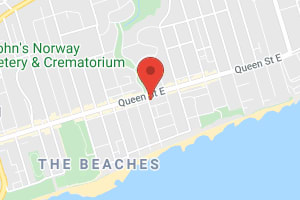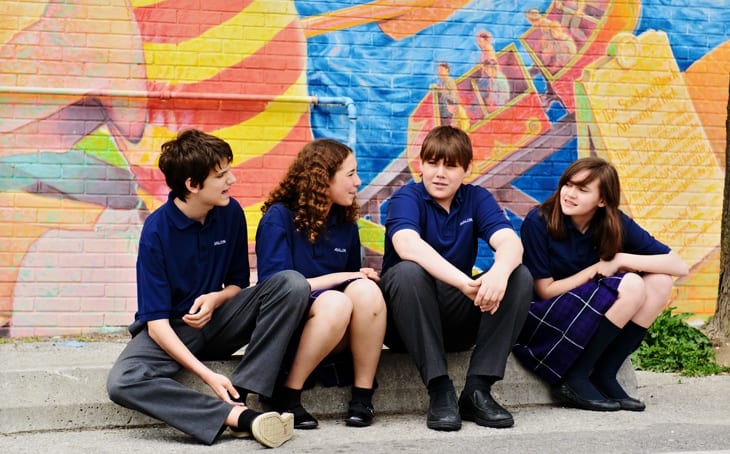
How we see Avalon Children's Montessori School
Compare with:
How Avalon Children's Montessori School sees itself
"Avalon strives to provide a dynamic & nurturing environment where learning takes place naturally. We encourage our students to continually challenge themselves. We are a small, independent, co-educational school that supports the Montessori philosophy. Our objective is to guide the children with respect and understanding, developing in them a love of learning that will last a lifetime."
"In nurturing the balance of the individual child a love is found. A love for kindness, wisdom, knowledge, repect and character. Our small multi age classrooms provide a rich learning environment designed to help children develop focus, independance, exploration skills, responsiblity and a sense of order. Our program instills confidence, independent thought and a lifelong love of learning."
"Founded in 1999, School Directors Sherry VanDerKooi, Angie Samis and Christine Kerry started a school where the needs of the children were the number one priority and integrity was a key element in the daily operation of the school. All three Directors are still actively involved in the teaching and day to day operations. We are an intentionally small montessori school with a mission to provide quality education that embraces the unique characteristics of each and every child."
"We value diversity, and are an inclusive school that encourages collaboration, cooperative learning and moral development. Our students are educated in a way that ensures opportunities to achieve, be challenged, learn and find happiness in their work. It is the individual needs of each student and the integrity of the Montessori philosophy that are the guiding principles of our programme."
"Over time we build partnerships with our families, by the time children graduate grade 8 students, staff and parents have all formed a deep and meaningful connection that doesn't end at graduation. Students, parents and staff continue their relationships beyond the elementary years. We continue to mentor, support, cheer for and celebrate together."


How people from the school’s community see Avalon Children's Montessori School
Top-down influence on the school’s direction and tone

Sherry VanDerKooi, Principal and Co - Founder
BA Trent University, Casa and Elementary Directress, Toronto Montessori Institute, Private School Principal Certificate, York University
Our doors opened in September 2000 with a toddler room and 1 casa classroom. Through the commitment and dedication of our staff and families, we have grown into a dynamic school that provides a quality education for children in pre-school through to grade 8.
We are very proud of the work that we do on a daily basis and enjoy a solid reputation in the Beach and surrounding area as well as within the private and Montessori community.
At Avalon, we are proud of the instruction that is delivered by our outstanding staff. Over the years, we have built a very strong team. People who are committed to the children and providing the opportunity for an exceptional experience. I was recently speaking to a group of private school educators and it was noted that working at a private school is not a job, it is a lifestyle. That is absolutely correct; our staff have made that choice and we all benefit from it!
Avalon staff are committed to professional development and collaboration. We have mutual respect and support for each other as professionals. Avalon is an active member of the Ontario Federation of Independent Schools and is aware of developments in the Ministry of Education. Our school is firmly entrenched in the Montessori philospophy and teachers at the Casa and Elementary levels are Montessori trained. As we prepare our adolescent students for the transition to secondary school, the program becomes more Ontario curriculum driven. This has been a very successful approach as evidenced by the experience of our graduates.
Avalon has created a supportive, nurturing and educational environment that motivates students, builds confidence, teaches independent thought and offers individualized attention. The needs and learning styles of the child are recognized and supported in our classrooms. Our goal is to celebrate and embrace the uniqueness of each student. We are concerned with the welfare of the whole child, encouraging a sense of involvement, community and belonging.
One of the things that I love about Avalon is the sense of community that has been fostered. The school itself is a community made up of parents, teachers and learners. Located on the TTC line, Avalon students access all the city has to offer while enjoying the beauty of the neighourhood called the Beach.
With this sense of community comes responsibility and we readily support the students as they explore their social conscience. Students at all ages are involved in a variety of programs including the Hop A Thon for Muscular Dystrophy, the Terry Fox Run, Hero Day for Second Harvest, fundraising activites for Free the Children as well as active involvement in We Schools in Action.
Maria Montessori believed that education should sow the seeds of learning and that is one of our guiding principals. All of our student participate in gym and sports activities, music, drama, art and performance. Our annual school production is the highlight of the year and we just staged an amazing version of Alice in Wonderland. For the sports minded, we currently hold the trophy for the ISAA track and field meet and look forward to defending our title in the next few weeks!
I encourage you to contact us to learn more about Avalon. The best way to experience one of the only JK to Grade 8 independent schools in Toronto is to come for a visit and spend time with us.
Sherry VanDerKooi
THE OUR KIDS REPORT: Avalon Children's Montessori School
Next steps to continue your research:
Continue researching Avalon Children's Montessori School with OurKids.net, or visit school website.